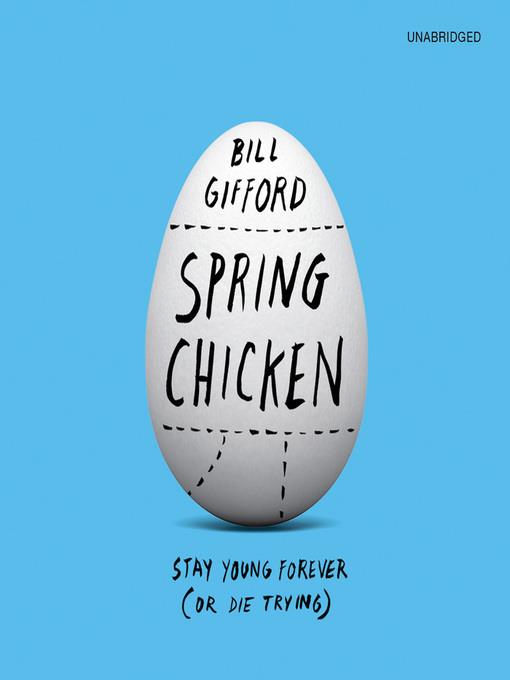
Spring Chicken
Stay Young Forever (or Die Trying)
- اطلاعات
- نقد و بررسی
- دیدگاه کاربران
نقد و بررسی

January 5, 2015
Gifford, a correspondent for Outside magazine, confronts mortality and the ways in which people try to escape it, in this engaging study. “I wanted to know everything about aging, this universal but still little-understood process,” he states. To this end, Gifford interviews a wide range of sources, from respected scientists to the fringe figures involved with hormone therapies, radical diets, and herbal supplements. He uncovers surprising facts along the way, such as how the lifespans of naked mole rats defy expectations, or that the Laron little people of Ecuador don’t get cancer. Though he doesn’t skimp on the relevant science, the tone remains accessible, even humorous, as Gifford threads his own personal journey and experiences together. Some tangents seem a little far afield, like a discussion of an ill-fated experiment involving the enclosed artificial ecosystem Biosphere 2 in the early 1990s, yet everything ties back to the central question: why do some people fade away early, but a select few stay vital well past the century mark? Gifford does acknowledge that there is no cure for aging, but his core message—“Use it or lose it”—is a common-sense piece of advice anyone can find useful. Agent: Larry Weissman and Sascha Alper, Larry Weissman Literary.

January 1, 2015
Examination of the science behind humanity's obsession with aging and staving off death.The oldest recorded person was Madame Jeanne Calment, who died in 1997 at the age of 122. She was not exactly an exemplar of good health either; she smoked until she was 117. By contrast, the oldest clam was 507. Can humans learn something about aging from clams? Is it possible to plan for a long life? Those are only some of the questions Outside correspondent Gifford (Ledyard: In Search of the First American Explorer, 2007) tackles in his exploration of not only the health industry's advancements-e.g., controversial hormone therapies-to prolong life expectancy and reduce the effects of aging, but also the cultural perspectives that underscore the evolutionary drive to live as long and comfortably as possible. The author points out the underlying contradiction that while life expectancy has climbed significantly in recent years, the overall health of the population is getting worse. This conundrum cannot easily be answered, but the ethical quandaries related to these medical advances lead to an alternative argument that there is simply no limit to human life. One particularly fringe idea is parabiosis, or surgically pairing a young body to an old one, thereby "distributing" the youth. Gifford chronicles other seemingly sci-fi techniques that are striving for legitimacy and expertly explains complex science in layman's terms. He also analyzes studies of Alzheimer's and other disorders and diseases that cause significant cognitive decline. Perplexing still is the fact that people age differently, and there is no predictor why some people live to be 100 in great physical and mental health while others suffer severe debilities at relatively younger ages. The only reasonable prescription for living a long and healthy life is, somewhat anticlimactically, simply exercising and eating right. Gifford skillfully navigates the many strands of aging research to create an entertaining narrative of the perils of getting old.
COPYRIGHT(2015) Kirkus Reviews, ALL RIGHTS RESERVED.

February 15, 2015
We are living longer, and some people would like to halt or reverse the aging process. Health, fitness, and science reporter Gifford (former executive editor, Philadelphia magazine; former features editor, Men's Health) takes readers on a journey through current research about aging. He begins with a look at the aging process, pondering why some people age more quickly than others. He also considers the cell, the basic unit of life, noting that it is programmed to age and die. The body's organs age and become less efficient as well. Quality nutrition and exercise help to maintain efficient body function and reduce health problems, but most of the antiaging treatments touted as cures do not work. Gifford notes research on Resveratrol, the "red wine pill," which turns out to be useless even though moderate consumption of red wine has positive effects on cardiovascular health. VERDICT Gifford's entertaining and informative book will give readers sound advice and inform them about current aging research.--Barbara Bibel, formerly Oakland P.L.
Copyright 2015 Library Journal, LLC Used with permission.




دیدگاه کاربران